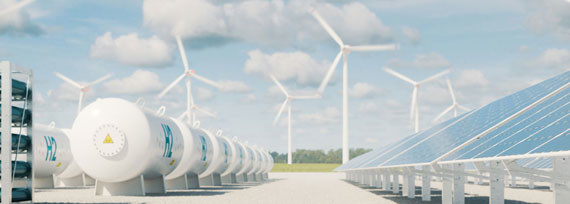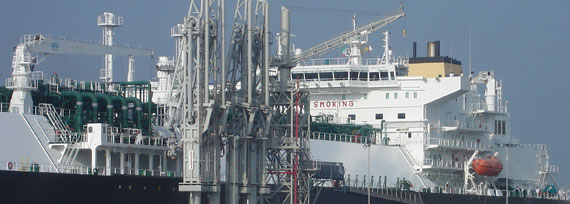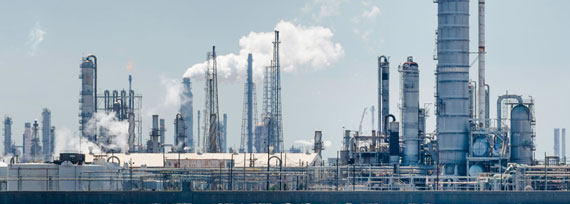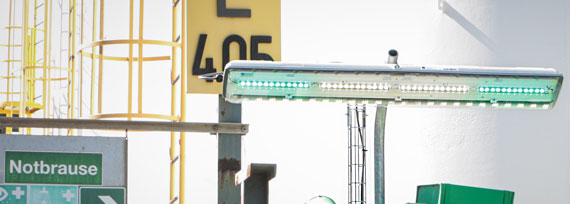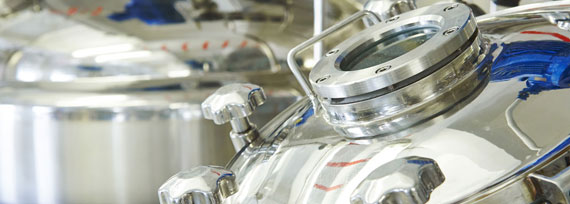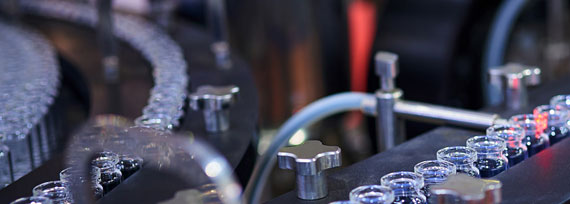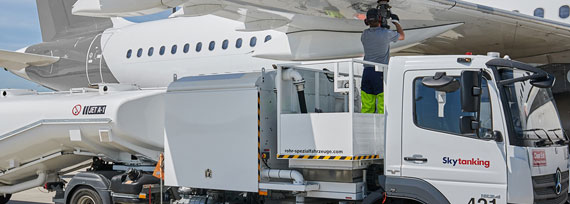R. STAHL develops an Ex d enclosure for analysis coolers for use in Ex Zone 1
The demand for electrolysis systems for producing green hydrogen is increasing rapidly. An important aspect to bear in mind is the monitoring of the produced hydrogen using gas analysers. But the importance of explosion protection shouldn't be underestimated either. R. STAHL has developed a tailored Ex enclosure for gas analysis specialists SUN-Control-Analytik, which makes it possible to operate analysis coolers in Ex Zone 1.
Introduction
When it comes to water electrolysis, the devil is in the details: To eliminate the possibility of the produced hydrogen containing contaminants, the gas generated in the electrolyser has to be carefully monitored and analysed. This analysis is not only carried out for the purposes of quality assurance and operation monitoring; it is also relevant to safety. The reason? The high-tech gas analysers and sensors are sensitive to condensate, meaning that the sample gas has to be prepared beforehand. This is done using process analysis coolers manufactured by gas analysis specialists SUN-Control-Analytik GmbH.
The company's product range has included an IP65 process analysis cooler (GT 5.65) for many years now. This is used to cool sample gases to a defined dew point using a thermoelectric Peltier cooler. The condensate produced is separated in a WT 20.48 water trap with a built-in SUN-C membrane®. After passing through the process analysis cooler, a dry and dust-free sample gas is available for the premium gas analyser/gas sensor. The process analysis cooler is also used to cool liquids.
Particularly in the huge electrolysis systems that are currently being constructed to produce green hydrogen, it's important that the devices can be installed not only outside hazardous areas but also in Ex Zone 1. This requirement is a though challenge! The reason? The development and certification of devices for hazardous areas is anything but simple.
Customised solution for Ex Zone 1
SUN-Control-Analytik identified the future demand for hydrogen analysis equipment early on and contacted the specialists at R. STAHL back in 2017. The company from Waldenburg specialises in developing and producing solutions for use in hazardous areas. The Customer Solutions Business Unit at R. STAHL is a one-stop supplier for all aspects of explosion protection: From consulting, engineering, development and production of the solution, through to supporting customers and users by providing practice-relevant expertise.
It soon became clear to the explosion protection specialists that the solution for an analysis cooler for use in hazardous areas could not simply be achieved by placing the current cooler in a flameproof, certified standard enclosure. This is because its approval does not allow for combustible gases or liquids to be introduced into the certified enclosure. Another unique characteristic also made it more difficult to use a flameproof standard enclosure: Due to the operating principle, a relatively large amount of heat has to be removed from the process analysis cooler. What's more, a solution had to be found that makes it possible to read off the current temperature of the process analysis cooler as well as status messages for the components installed in the analysis cooler.
R. STAHL's solution is based on a tailored flameproof enclosure equipped with an inspection window, which is also flameproof and makes it possible to view the analysis cooler's temperature values and status information. The cooler was positioned in the enclosure in such a way that the heat that enters can be reliably removed. The ignition protection concept in the enclosure was also tailored to meet specific requirements. This was necessary because hydrogen poses challenges relating to explosion protection: It can combine with oxygen and/or with the ambient air to create extremely explosive mixtures (oxyhydrogen) that span a very wide explosive range. Mixtures with a content between 4 vol% and 77 vol% can explode – and only a tiny amount of ignition energy (0.02 mJ) is required in order to trigger an explosion. This has earned hydrogen its place in the most hazardous ignition group, IIC. The extremely high flame propagation speed makes hydrogen explosions incredibly destructive.
It was possible to develop the most cost-effective solution because the experts at R. STAHL not only have industry-specific expertise, but are also familiar with approval-relevant details and procedures, and the expectations of test bodies. This was subsequently certified in collaboration with the approval authorities. The specialists from the Customer Solutions department are also able to estimate the (approval) costs depending on the ignition protection type selected in order to assess the economic viability (target price) and take this into account in the solutions for their customers.
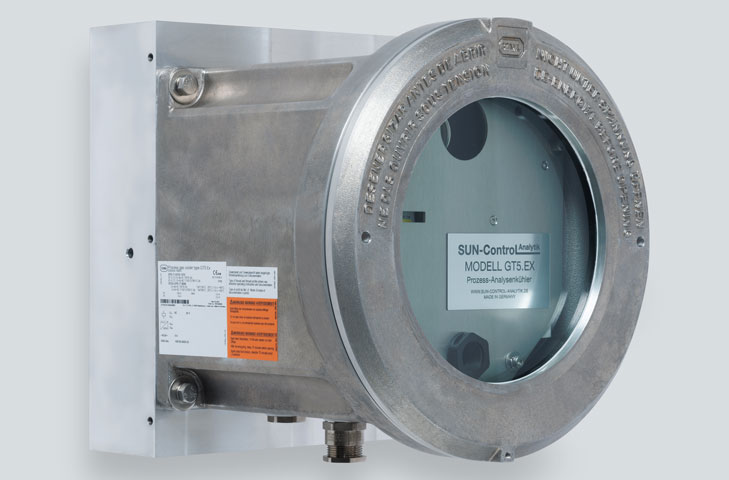
Approval for the global market
The GT5.EX process analysis cooler from SUN-Control-Analytik GmbH, which is suitable for applications in hazardous areas, can be used in Zone 1 at European (ATEX) and global (IECEx) level – this is a first in the world of analysis coolers. The device is approved for explosive gas atmospheres of the maximum explosion group, IIC, and explosive dust atmospheres of group IIIC, and meets the requirements of temperature classes T4 and T6 (surface temperatures of 135 or 85 °C). The devices can be used at ambient temperatures of 60 °C or 40 °C. This is an important characteristic, as demonstrated in an impressive ongoing project: More than 220 of these devices are being used in the large-scale NEOM project. As part of this, an electrolysis system is currently being built in Saudi Arabia.
R. STAHL's production processes have been certified for the complex field of explosion protection components for some now. This is why SUN-Control-Analytik has the cooling modules it produces in-house integrated into an enclosure suitable for use in hazardous areas produced by the specialists based in the town of Waldenburg, Baden-Württemberg. From the user's point of view, however, functional explosion protection comes down to more than just using safe components. The operator's obligations also include a risk assessment, correct commissioning, regular tests and inspections, maintenance and repair of system components, and documentation. These are all tasks which call for considerable expertise in explosion protection. R. STAHL's specialists share this knowledge as part of in-house seminars and qualification programmes, thereby living up to their claim of being a one-stop shop for all aspects of explosion protection.




